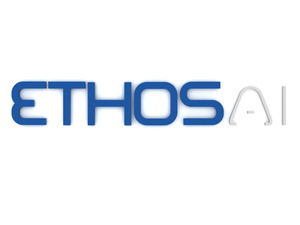EthosAI: Leading the Way in Responsible and Transparent AI Development
Body
Understanding Responsible AI
Responsible AI encompasses a set of principles and practices designed to ensure that AI systems are developed and deployed in ways that are ethical, transparent, and beneficial to society. It involves addressing concerns related to fairness, accountability, and transparency throughout the AI lifecycle. EthosAI embodies these principles by emphasizing the importance of creating AI solutions that not only meet technical and operational standards but also align with ethical values and societal norms.
EthosAI’s commitment to Responsible AI is evident in its approach to AI development, which includes rigorous ethical guidelines, stakeholder engagement, and a focus on minimizing biases and maximizing fairness. By integrating these practices, EthosAI helps organizations navigate the complexities of AI implementation while upholding the highest standards of ethical conduct. This proactive approach ensures that AI systems contribute positively to society and do not reinforce existing inequalities or create new challenges.
The Role of AI Audits
AI audits play a critical role in the ecosystem of Responsible AI by providing a structured framework for evaluating the performance, fairness, and compliance of AI systems. EthosAI leverages comprehensive AI audit processes to assess AI technologies, ensuring that they adhere to established ethical guidelines and regulatory requirements. AI audits involve examining various aspects of AI systems, including data quality, algorithmic transparency, and decision-making processes.
EthosAI’s AI audit framework is designed to identify potential issues and areas for improvement, enabling organizations to address concerns before they escalate. This proactive approach to auditing not only enhances the reliability and effectiveness of AI systems but also builds trust with users and stakeholders. By conducting thorough AI audits, EthosAI ensures that AI technologies are used responsibly and ethically, contributing to a more transparent and accountable AI landscape.
EthosAI’s Impact on AI Development
EthosAI’s impact on the field of AI development is profound, setting a benchmark for how organizations can integrate Responsible AI principles into their practices. The organization’s emphasis on transparency and ethical considerations has led to the development of innovative solutions that address real-world challenges while maintaining a strong commitment to ethical standards. This approach has garnered widespread recognition and adoption, influencing other organizations to adopt similar practices.
One of the key aspects of EthosAI’s influence is its role in shaping industry standards and best practices for Responsible AI. By collaborating with policymakers, industry leaders, and academic institutions, EthosAI contributes to the development of guidelines and frameworks that promote ethical AI practices across the board. This collaborative effort helps create a more cohesive and standardized approach to AI development, fostering an environment where ethical considerations are prioritized alongside technical advancements.
Challenges and Future Directions
Despite its significant contributions, EthosAI faces several challenges in its mission to promote Responsible AI. One of the primary challenges is navigating the evolving regulatory landscape, which varies across regions and jurisdictions. Ensuring compliance with diverse regulations while maintaining consistent ethical standards requires continuous adaptation and vigilance.
Additionally, as AI technologies advance, new ethical dilemmas and challenges emerge. EthosAI must remain at the forefront of these developments, continuously updating its practices and frameworks to address emerging issues. This includes staying abreast of advancements in AI research, understanding the implications of new technologies, and adapting its approach to ensure that it remains aligned with the latest ethical standards.
Conclusion
EthosAI is leading the charge in responsible and transparent AI development, setting a high standard for how AI technologies can be designed, implemented, and audited to uphold ethical values and societal benefits. Through its commitment to Responsible AI and its rigorous AI audit processes, EthosAI demonstrates that it is possible to innovate and advance technology while maintaining a strong focus on ethical considerations. As the field of AI continues to evolve, EthosAI’s work will remain crucial in guiding organizations toward practices that ensure AI technologies contribute positively to society and uphold the principles of fairness, transparency, and accountability.














Comments